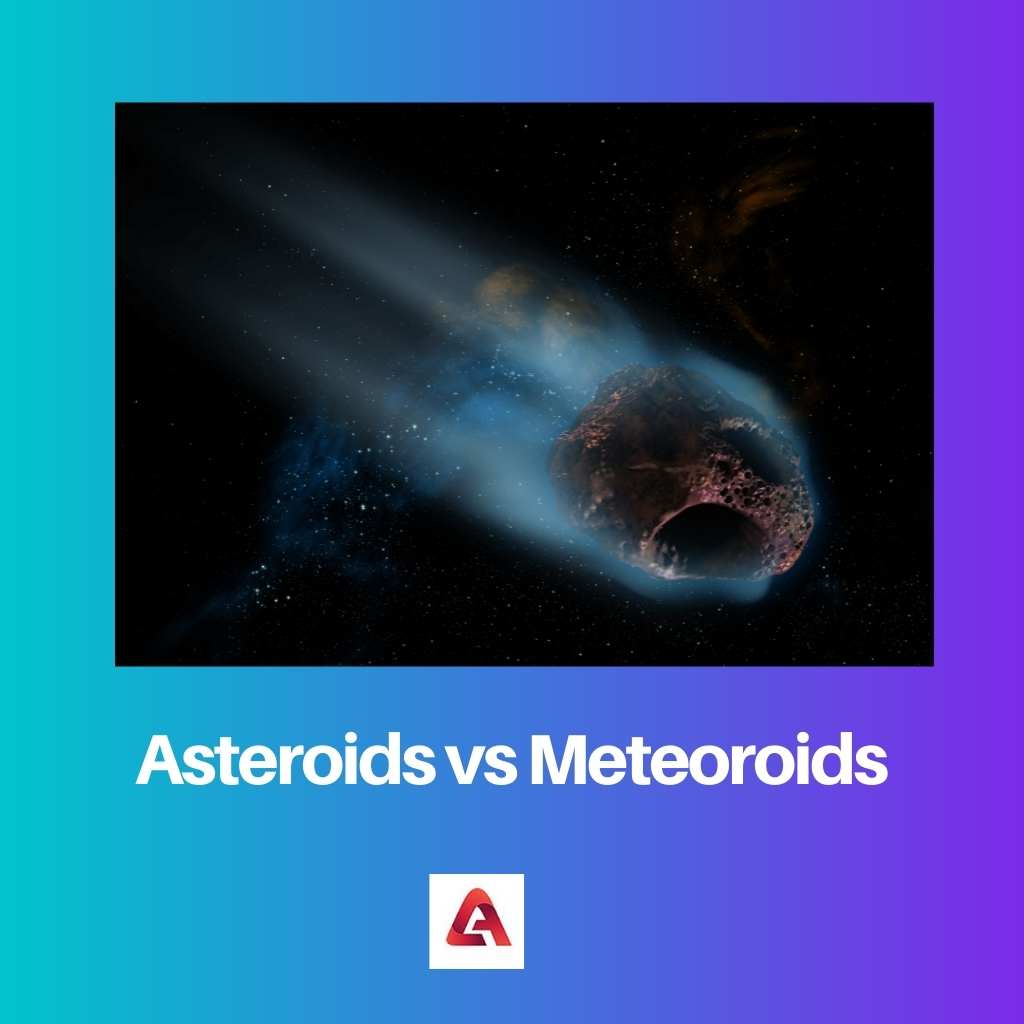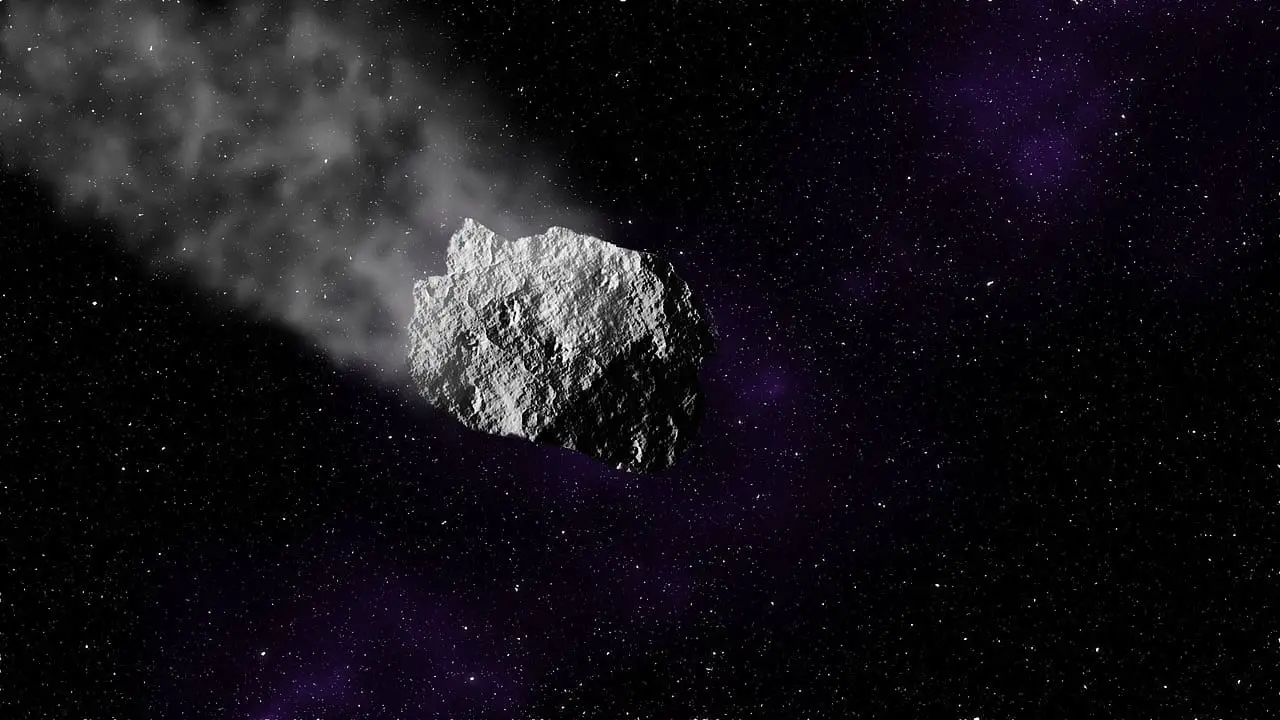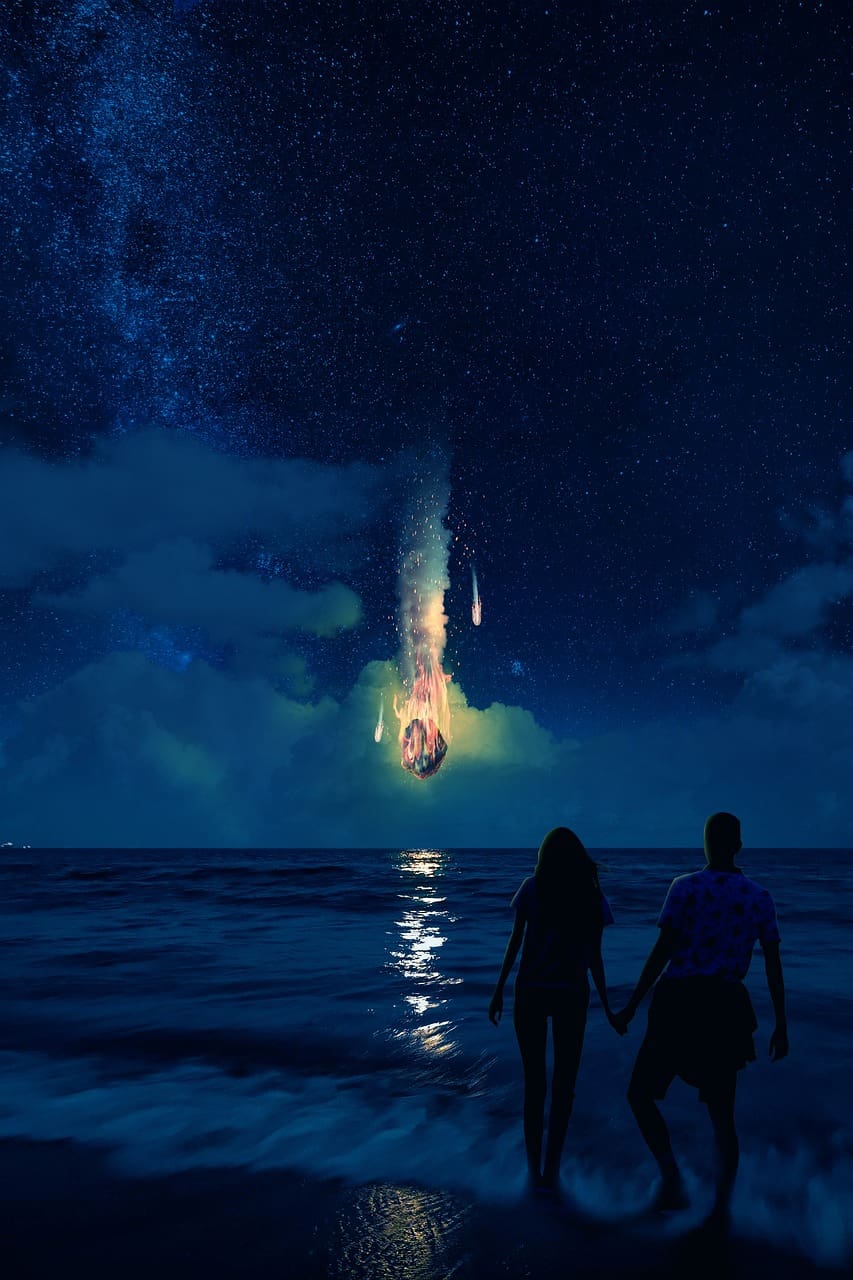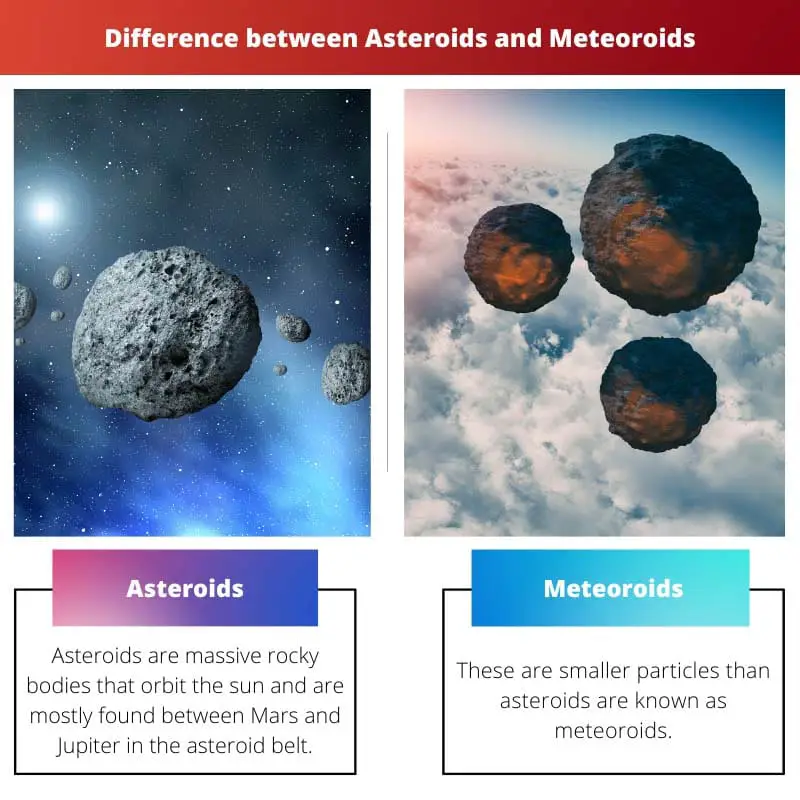Asteroids and Meteoroids might be the rocks, but some differences make them distinct from each other.
Rocks originate from space, but the location from which they originate makes the different names i.e. whether they’re hurtling through space or the atmosphere and colliding with the Earth’s surface.
Key Takeaways
- Asteroids are larger rocky or metallic bodies orbiting the Sun, while meteoroids are smaller debris from comets or asteroids.
- Asteroids are found primarily in the asteroid belt between Mars and Jupiter, while meteoroids can be found throughout the Solar System.
- Meteoroids that enter Earth’s atmosphere and burn up are called meteors, while remnants that reach the ground are called meteorites.
Asteroids vs Meteoroids
The difference between asteroids and meteoroids is that asteroids are large bodies made up of rock that orbits around the Sun. On the other hand, Meteoroid is a small rocky element that orbits around the Sun. Many asteroids pass through the earth’s surface but from the past several thousand years, no asteroids have hit our earth’s surface as they can have a huge impact and can devastate the land and lives of people living on the earth. On the other hand, meteoroids are not as harmful as compared to asteroids. But the large meteors, once exploded can create shockwaves on the surface of the earth.

There are numerous asteroids in space, and most of them lie between Mars and Jupiter’s belts. Asteroids that pass behind Jupiter are knowns as Trojan asteroids and Near-Earth Objects are asteroids that pass close to the Earth’s surface.
So the name of the asteroids changes with the location and size of the particles.
A meteoroid is a small rock or element that lies in the outer space of the earth, and objects that are smaller than meteoroids are known as micrometeoroids or space dust.
Nickel, iron, and other elements combine to form a meteoroid. There are three basic types of compositions: stony-iron, iron, and stone.
Comparison Table
| Parameters of Comparison | Asteroids | Meteoroids |
|---|---|---|
| Definition | Asteroids are massive rocky bodies that orbit the sun and are mostly found between Mars and Jupiter in the asteroid belt. | These are smaller particles than asteroids are known as meteoroids. |
| Size | Bigger in size. Few meters to hundreds of kilometres in diameter. | Smaller in size, around 18meters in diameter |
| Composition | They are black in colors and made up of clay, rocks, and silicates. | Meteoroids are made up of minerals, silicates, oxygen, silicates, iron, nickel. |
| Types | There are 3-classes of asteroids name M-type, S-type, and C-type. . | Iron meteorites, stony, stony-iron are the three types of meteoroids. |
| Location | Most of the asteroids are found in the asteroid belt. | Meteoroids are found in the entire solar system from the inner planets to the Kuiper belt. |
What is Asteroid?
Dust and a cloud of gas coalesced to form our massive solar system. However, some of the components ejected and made the sun, while others remained between the planets and solar system for a long time and formed asteroids.
Due to which asteroids are sometimes referred to as minor planets. The size of asteroids is not specific as they can vary from 33 feet to 329 miles approx.
There are 3-broad compositions of asteroids:
- The first type is C-type and is known as Chondrite asteroids which are the most common asteroids found in the outer space of earth’s crust.
- The next type of M-type is known as metallic asteroids. These asteroids experience high temperatures and sometimes get melted with iron to center and make lava on the surface.
- The third type is S-type and is known as stony asteroids that are made up of silicates and nickel-iron.
According to NASA, a small amount of the asteroid population could be burnt out as comets and, their ices get melted and spread throughout space. Ceres was the first asteroid that was found and thought to be a new planet.
Then this led to the discovery of various major asteroids which seemed to be points of light, like stars, with little or no planetary disc, but was easily identifiable from stars due to their apparent motions, using the equipment available at the time.

What is Meteoroid?
A meteoroid is a small particle of rocks that are found in the outer region of space. Numerous meteoroids are traveling around the earth at a very high speed in different orbits of the solar system.
The asteroids mesh with each other, and then there is the formation of meteoroids, due to which meteoroids are smaller than asteroids.
A meteoroid stream is formed when meteoroids are ejected by a comet orbit together. Comets drop debris as they travel through space, and they are called other meteoroids.
Hundreds, if not thousands, of meteoroids and micrometeoroids might be found in the hazy tail.
There are 3-main types of matroids first one is iron meteoroids which are the densest materials and have strong power magnetic properties.
The other one is Stone meteoroids that are present on the surface of our planet for a very long time.
The vast majority of stones have enough iron to easily stick to a powerful magnet, and freshly fallen stones will have a black fusion crust, generated when the surface burnt during flight.
The last one is stony-iron meteoroids that are composed of nickel-iron and stones. The stony irons are considered to have developed at their parent bodies’ core/mantle border.
Meteoroid impacts are most likely the most significant cause of “space weathering.”

Main Differences Between Asteroids and Meteoroids
- The size of asteroids is larger than that of meteoroids because some meteoroids are generated by the collision of two asteroids. Asteroids vary from 1-100 kilometers in diameter, while meteoroids are less than 10 meters.
- Asteroids are also known as minor planets while when the meteoroids come near the earth’s surface, they emit intense light due to the heat and temperature of the earth, due to which meteoroids are known as falling stars.
- An asteroid has an elliptical orbit while the shape of meteoroids is also elliptical but, they are easily pulled by larger bodies.
- It is the convention that asteroids are left out from the planet in our solar system. On the other hand, meteoroids consider being the smaller element that disintegrates from the comet or asteroid.
- Asteroids do not have an atmosphere. A meteoroid, on the other hand, burns as it falls, indicating that it has an impact on the atmosphere of the Earth’s surface.

- https://asu.pure.elsevier.com/en/publications/asteroids-the-big-picture
- https://agupubs.onlinelibrary.wiley.com/doi/abs/10.1029/93JE01203



